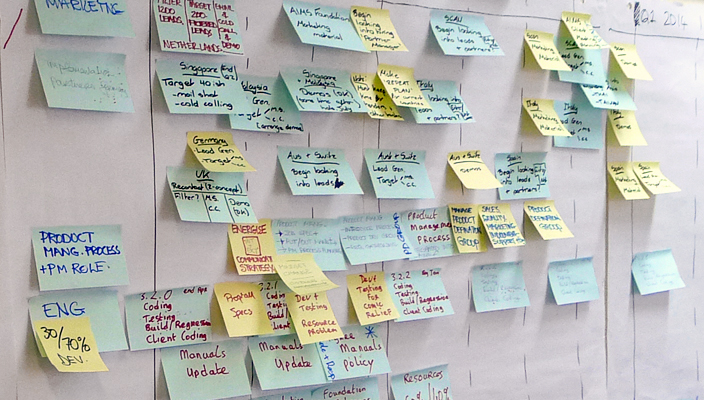In product management, it is so easy to just keep filling the role. Creating strategy, understand the market, refining stories, etc. You can go about your day and get things…

How do I keep up with tech? I keep coding.
In product management, it is so easy to just keep filling the role. Creating strategy, understand the market, refining stories, etc. You can go about your day and get things done. But over time, as technology and the industry changes, one thing is certain. You have to evolve and learn. Many people in this role have a hard time keeping up with the trends in the space. For some, it is fear because they don’t know the code. For others, they just don’t have time to learn another skill. Whatever the reason, you have to make education part of your workflow.
The challenges of falling behind hurt your ability to lead successful product/feature launches. Another super solid product manager I work with, Michel Mongeau and I were discussing recently one of the most important traits of a PM. The ability to ask the right questions. I hear from some that they think a product manager’s role is to have all the answers, but IMHO that couldn’t be further from the truth. A product manager has three distinct responsibilities:
- Define and understand the market needs / feedback (pre and post release)
- Have conversations with engineering to determine solutions
- Coordinate execution of the solution with the business
There are many details within these but at a high level, they cover the bases.
So, how do I keep up with the changing technical landscape? How do I know what questions to ask the engineering team. Some people read up, some people maintain relationships with those in the know and have periodic discussions. Because I was an engineer, I keep coding. I set aside a few hours a month to try and install a few new libraries, write a few more small applications that give me a sense of the benefits of using certain technical frameworks. It is a very different world now in engineering. Engineers are smarter and more resourceful than we ever were when engineering was just hitting the mainstream. We didn’t have all the libraries and packages that handle all the functions that exist now.
Educating myself keeps me in the loop and lets engineers know I understand the pains they go through. It lets them know that I understand true timing and I can help speak with them as close to their level as possible. The questions I ask are informed and are meant to prompt discussions about solutions, not dictate. How can you help your teams, here are a few tips.
Listen to your team. Everyone from interns to leads has a voice and a perspective. Don’t get caught up in the years of experience. Some of the best ideas and insights come from fresh eyes.
Learn what you can. Immerse yourself in books, code, whatever you feel comfortable with. Find out what books and libraries your teams are interested in. It is a great way to build a relationship.
When technologies are implemented or proposed, do your homework on the challenges with those solutions. The engineers focus on what it gives you, be prepared for what it doesn’t.
So yeah, I code. It is what I know and what I really enjoy. It helps me “try” to keep pace with the team. Find what works for you. You don’t have to be the smartest person in the room, just be willing to intelligently ask the right questions and hopefully you will get intelligent answers.



